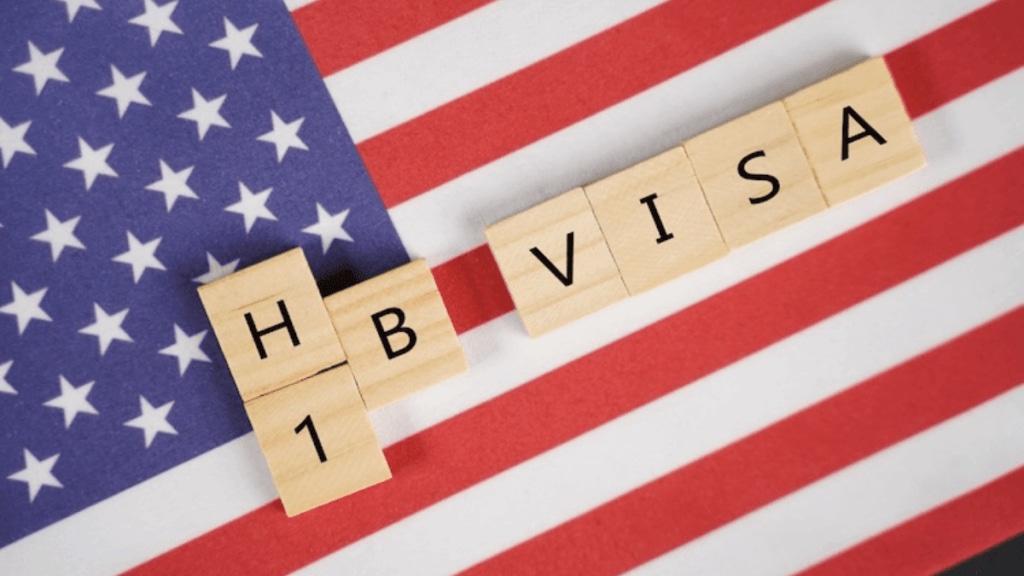Amanda Goodall, founder of The Job Chick & InsiderEdge, took to X on Friday to critique a new H‑1B visa rule she believes is flawed and unfair. According to her while the $100,000 filing fee is presented as a measure to protect US jobs, in reality it impacts smaller companies and foreign workers the most, while big outsourcing firms largely escape the cost for employees already in the US.
H-1B Fee: Who really pays, who gets away?
“$100,000 H-1B FEE?! USCIS just clarified more,” Goodall wrote on X sparking debate online. She pointed out how a few days ago, USCIS clarified who is exempt from the fee, including those transitioning from F-1 to H-1B and argued that while the rule is meant to encourage companies to hire Americans, it ends up affecting smaller employers and foreign workers abroad. “Guess who skips the fee?” Goodall wrote before adding, “Outsourcing firms with foreign grads already inside the US.”
Many agreed with her view, pointing out government data showing that 71% of H‑1B holders come from F‑1 student visas, and argued that the fee should apply to all work visas. “These are the loopholes we can’t overlook,” one X user commented on the post. “Need to make it apply to all work visas. Companies will just move to L1s,” another wrote.
Lastly, she pointed out that the USCIS has already received enough H‑1B petitions fiscal year 2026. This means that for many applicants, the $100,000 fee is almost irrelevant since the visa slots are already filled.
The newly imposed H-1B fee applies primarily to foreign workers who are abroad and filing new H‑1B applications after September 21, 2025. It also applies to individuals already in the US if they opt for consular processing, that is, applying to get the visa stamped at a US embassy or consulate outside the country.
The fee does not apply to international students switching from an F-1 visa to H‑1B status. Neither it applies to existing H‑1B visa holders nor to intra-company transferees who are already in the US on L‑1 visas.This exemption allows American-educated graduates to enter the workforce without worrying about $100,000 charge.
$100,000 H-1B FEE?!
— Amanda Goodall (@thejobchick) October 24, 2025
USCIS just clarified more…
– Applies to foreign workers abroad filing after Sept 21
– STILL applies if worker is in the U.S. – but consular processing is used
– Must be paid before you even apply
– NO fee if switching from F-1 student visa to H-1B
– Trump…
Critics seemed against the fact that tech staffing giants and large consulting firms employing international talent domestically on F-1, OPT, or prior H‑1B visas can continue their hiring without paying the $100,000 surcharge. Meanwhile, smaller firms trying to bring in skilled workers from abroad must bear the cost.
The H-1B cap is already full
The US Citizenship and Immigration Services earlier announced that it has received enough petitions to reach the H‑1B visa cap and the master’s cap for fiscal year 2026. A few days ago, USCIS clarified who is exempt from the fee, including those transitioning from F-1 to H-1B, but not everyone is happy with the changes. Some internet users argue that while the rule is meant to encourage companies to hire Americans, it ends up affecting smaller employers and foreign workers abroad, while larger outsourcing firms avoid the fee for workers already in the US.
“We have received enough petitions to reach the congressionally mandated 65,000 H-1B visa regular cap and the 20,000 H-1B visa US advanced degree exemption, known as the master’s cap, for fiscal year 2026,” USCIS said in a recent update. This means that all H‑1B slots for the year are now full. No visas are available for applicants unless Congress authorises additional numbers.
Earlier, while imposing the hefty $100,000 fee on H‑1B visas, President Trump stated that the fee would ensure Americans are hired first, rather than outsourcing jobs abroad. The fee must be paid before submitting a visa petition, making it an upfront cost for employers looking to hire international talent.

